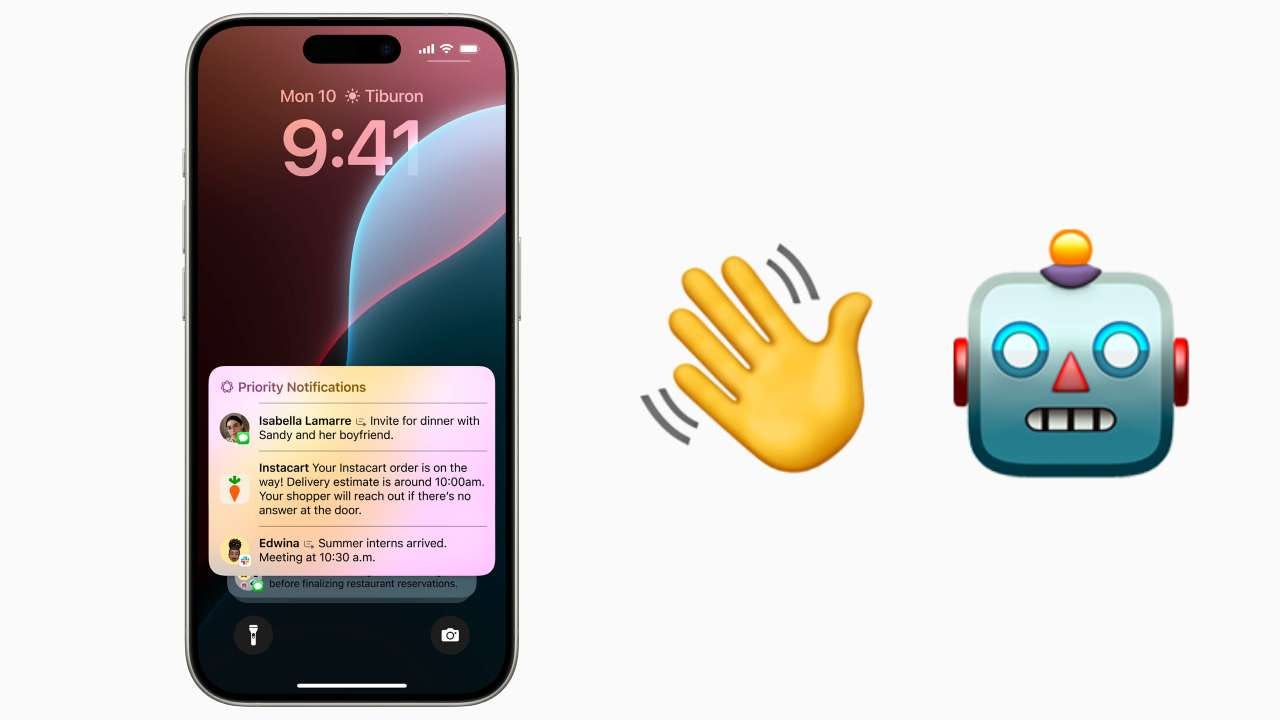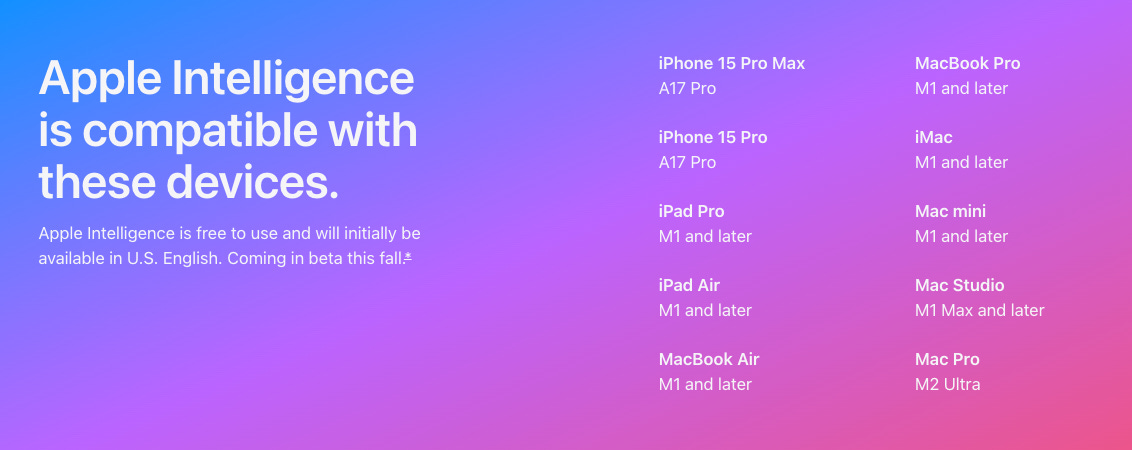Apple Intelligence compatibility list: why you may need to upgrade your iPhone
It'll work on the iPhone 15 Pro series and later, according to Apple's list of supported devices
Apple Intelligence and the new Siri are coming to an iPhone near you this fall – if you have the newest high-end iPhone or a relatively new Mac. Officially, Apple has said that its AI features will be available on (read: limited to) the iPhone 15 Pro and the iPhone 15 Pro Max at launch among its smartphones, which leaves the eight-month-old iPhone 15 and iPhone 15 Plus out of Apple’s artificial intelligence revolution.
Apple Intelligence compatibility was the biggest question I got some subscribers following the WWDC 2024 keynote (along with questions surrounding iOS 18 home screen customizations like tinting), so here’s the full breakdown.
Apple Intelligence compatibility list
iPhone 15 Pro
iPhone 15 Pro Max
iPhone 16 (rumored)
iPhone 16 Plus (rumored)
iPhone 16 Pro (rumored)
iPhone 16 Pro (rumored)
iPad Pro M1 (or greater)
iPad Air M1 (or greater)
MacBook Air M1 (or greater)
MacBook Pro M1 (or greater)
iMac M1 (or greater)
Mac mini M1 (or greater)
Mac Studio M1 Max (or greater)
Mac Pro M2 Ultra (greater)
The Apple A17 Pro chipset and accompanying 8GB of RAM or greater appear to be the red line for Apple Intelligence. So half of the iPhones launched back in September 2023 – with the A16 Bionic chip and 6GB of RAM – won’t get the full slate of iOS 18 features. If you bought any iPhone 14 or the two non-Pro iPhone 15 models, you'll need to upgrade this fall.
Of course, Apple will gladly sell you an iPhone 16 in any color in September when its next phone series inevitably launches. Hopefully, Apple couples this bad news with some quality iPhone 16 trade-in deals.
The reason why I expect the iPhone 16 and iPhone 16 Plus will suddenly appear on the Apple Intelligence compatibility list (even though they’re non-Pro iPhones) is because these iPhones usually inherit the previous year’s specs, namely the chipset and RAM. So while the iPhone 16 Pro and Pro Max will likely boast the A18 Pro chipset along with some design changes and better cameras, the iPhone 16 and 16 Plus will almost certainly get the A17 Pro and qualify for Apple’s version of AI.
Broad Apple Intelligence compatibility for Macs
Conversely, you can actually go back as far as November 2020 for Macs because any M1 chip device will support Apple intelligence, a relief to many laptop shoppers. You won’t need to upgrade if you have Apple Silicon powering your Mac.
The iPad support covers new iPad Pro and Air models launched in 2021. Sadly, the iPad mini, in desperate need of an upgrade, doesn’t appear on the list (the 6th gen model is stuck with the A15 chipset).
Apple’s AI: a different approach than Samsung
Apple is taking a very different approach to the rollout of its AI features compared to Samsung. While Samsung’s AI features launched exclusively on new phones like the Samsung Galaxy S24 Ultra in January, they came to much older Samsung devices in the subsequent months through a OneUI 6.1 update.
This means millions of Samsung owners have access to at least some Galaxy AI functionality. We’ve tested Circle to Search, Live Translate, and note summaries on the Z Fold 5, Z Flip 5 and S23 Ultra, for example. Next month, the Galaxy Z Fold 6 and Z Flip 6 will expand on Samsung’s Galaxy AI offerings at Unpacked on July 10 (the date for this event has already leaked several times over).
It’ll be interesting to see which approach works. Samsung’s AI features are being used (and enjoyed) by millions of existing Galaxy smartphone owners, while Apple will be encouraging upgrades (and sales) to experience its flavor of AI.




